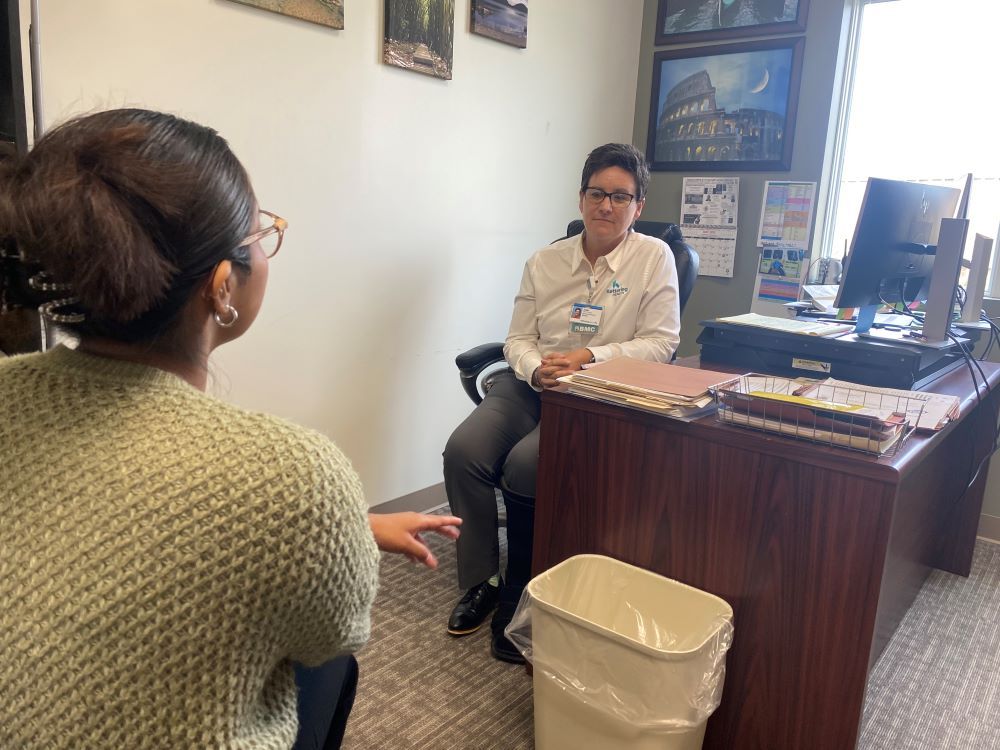Behavioral and Mental Health
Want to learn more about this at Kettering Health?
At a Glance
Q: How do you cope with grief after a loss?
A: Grief is a personal, non-linear process. Healing starts with small steps—choosing what helps, connecting with others, and communicating your needs.
- Grief is unique for everyone.
- Avoid comparing your grief to others.
- Practice the “three Cs”: choose, connect, communicate.
Losing someone or something important is always difficult. Loss changes our world in an instant. And, suddenly, we’re faced with learning to adjust, to cope, and—namely—to grieve.
Grief is compounded not just by loss, but by how it means grieving the loss of normalcy and of what was.
Julie Manuel, clinical program manager at Kettering Health Behavioral Medical Center, wants you to know: “You’re not alone.”
Every year, this one included, brings difficult for countless people. Some lost homes. Others lost jobs. Many lost loved ones. And each loss, regardless of what it entailed, creates deep emotional wounds that require “the slow, non-linear process of grief” to heal.
Embrace the process and make a plan
Grief, though universal, isn’t a one-size-fits-all experience.
“There’s no blueprint for processing it,” says Julie. “It happens as we allow it to happen.”
The first thing to know is your grief is not anyone else’s. Julie encourages not comparing your grief with someone else’s. For starters, this may mean avoiding social media.
“Don’t compare your grief to someone else’s joy,” says Julie. “Instead, embrace that grief is a process and make a plan.”
The best plans, she says, are simple, which may feel counterintuitive.
Grief is heavy and intimating. Oftentimes, those in the thick of it often believe the solution to grief should be as dramatic and cumbersome as grief itself. But the way forward, Julie suggests, is the opposite: take baby steps that acknowledge the difficulty of grief and the possibility of moving forward.
“If we can simplify the grief process, if we can practice doing a few simple things, it’ll help reduce and even release some of the severity of grief.”
Practice the three C’s
As you build a plan, consider the “three Cs”: choose, connect, communicate.
Choose: Choose what’s best for you. Even during dark bouts of grief, you still possess the dignity of choice. “Grief often brings the sense of loss of control,” says Julie. Make choices about what you can attend, join, and do—and what you can’t—to help reinstate some of that loss of control.
Connect: “We’re wired for connection,” says Julie. And grief intensifies feelings of loneliness, which often leads to isolation. It’s difficult but important not to remove yourself from others’ lives.
“No one wants to constantly hear ‘How are you doing?’ But it’s important not to fake it when you’re asked.” That honesty will help you and will help others help you.
Communicate: “Put your needs out there. Say to others, ‘This is going to be awkward or weird, but this is what I need’,” says Julie. “Let folks know how you plan to respond to others who ask, ‘How are you doing?’’ The greatest difficulty with this, though, says Julie, is the vulnerability it requires.
Communicating however you can to your friends and family will help them know how best to come alongside you, especially when grief arrives. “And in those moments of breakdown or confusion, talk about it,” says Julie. “It’s how we heal.”
Moving toward healing
The only thing that will make grief worse is to hide or mask your it.
Instead, Julie invites anyone who’s grieving to remember that it is difficult and that that’s enough.
Don’t be someone you’re not; You’re not a burden. You’re a person navigating loss, like many others.
You may not feel like yourself quite yet, but you can take baby steps toward healing.
Find help and support for navigating loss and grief.
Learn more about our behavioral health services.People Often Ask
Start with small steps: choose what helps you, connect with supportive people, and communicate your needs.
Seek professional help if grief feels overwhelming, persistent, or prevents you from functioning day to day. A therapist can provide coping strategies and emotional support.
Avoid comparing your grief to others, and allow yourself to feel your emotions.
Grief can intensify loneliness. Staying connected with friends or family reduces isolation and provides emotional support, even when it feels difficult.
Be honest about what you need from others. Let friends and family know how you prefer to interact or respond, which helps them support you effectively.









